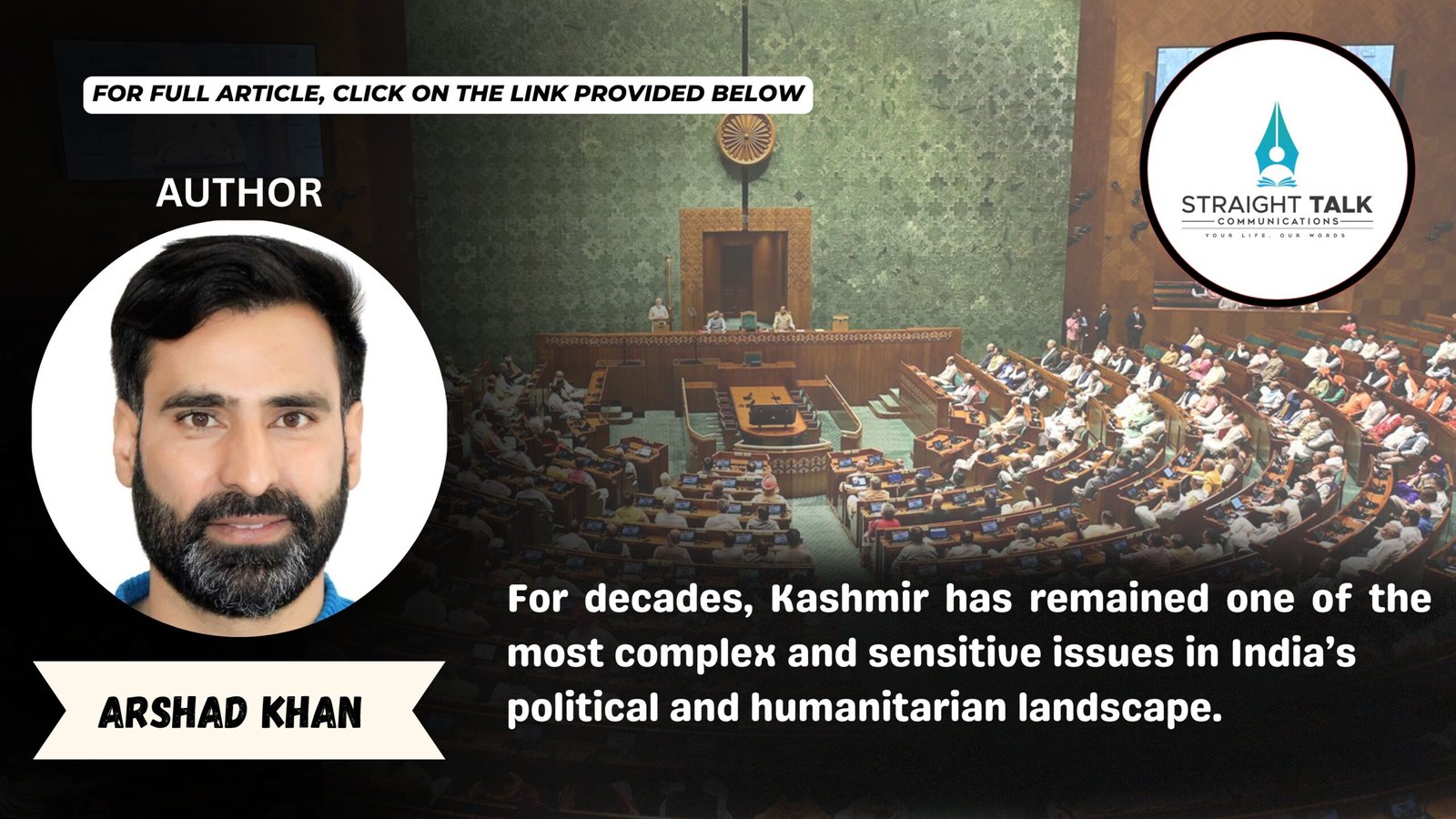Kashmiri Voice Echoes in Parliament

For decades, Kashmir has remained one of the most complex and sensitive issues in India’s political and humanitarian landscape. Often, the voices of the Kashmiri people, the primary stakeholders in this prolonged conflict, have been marginalized, misunderstood, or altogether silenced in national discourse. However, recent developments in the Indian Parliament have offered a glimmer of hope. For the first time in years, the floor of the nation’s highest democratic institution echoed with the unfiltered emotions and aspirations of Kashmiris, as articulated by leaders Aga Ruhullah Mehdi and Engineer Rashid.
In their respective speeches, Mehdi and Rashid did not resort to political ambiguity or populist rhetoric. Instead, they addressed the House with candor and conviction, speaking truth to power. Their voices represented not a political faction or an ideology alone, but the accumulated pain, resilience, and aspirations of a people who have long felt disconnected from the democratic processes meant to empower them.
Both leaders emphasized that Kashmir is more than a territorial dispute or a strategic concern. It is home to a vibrant culture, a unique historical identity, and a population with inherent rights that must be acknowledged and respected. Their call to the government was clear: democracy must begin by respecting the people it claims to represent. True integration cannot be achieved through force or silence, but through trust, inclusion, and dialogue.
Their courage in voicing uncomfortable truths highlighted the strength of India’s democratic framework, one where dissent, when peaceful and constructive, must be seen as a sign of maturity rather than defiance.
The recent terrorist attack in Pahalgam served as another painful reminder of the region’s vulnerability to violence. Innocent lives were lost, and once again, grief enveloped Kashmir. Yet, the public response to the attack stood as a poignant contrast to the often stereotyped portrayal of Kashmiris in mainstream narratives.
Local communities organized candlelight vigils, expressed condolences, and extended solidarity to the bereaved families, showcasing not only empathy but also a deep yearning for peace and stability. This collective grief transcended religious and political boundaries and demonstrated that the people of Kashmir, despite their longstanding suffering, continue to uphold values of humanity and unity.
Unfortunately, this display of compassion was, in some quarters, dismissed with cynicism. Some media segments and public commentators chose to question the sincerity of these expressions, labeling them as superficial or performative. Such responses not only undermine the pain of a community but also deepen the alienation that many Kashmiris feel.
There remains a deep-seated mistrust between sections of the Kashmiri population and the broader Indian state. This divide is rooted in decades of political turmoil, broken promises, and allegations of human rights violations. The challenge, therefore, lies not merely in managing the security situation, but in healing the emotional and psychological wounds that have been inflicted over generations.
Recognizing and respecting Kashmiri voices, especially when they express dissent within democratic institutions like Parliament, is a critical step toward restoring faith in the system. The speeches by Mehdi and Rashid were not acts of defiance, they were acts of democratic participation.
The path to a just and lasting peace in Kashmir must begin with a sincere commitment to dialogue and reconciliation.
The concerns, aspirations, and emotions of the people must be heard, acknowledged, and reflected in policymaking. Their participation in democratic processes should be encouraged and protected.
Reconciliation requires honesty. Acknowledging mistakes, addressing grievances, and ensuring accountability for human rights violations is essential for building trust.
Trust cannot be legislated, it must be earned through consistent action. Initiatives that promote inclusive development, cultural respect, and political representation will help foster a sense of belonging.
The tendency to view Kashmiris through a lens of suspicion or to equate criticism with disloyalty is counterproductive. Such narratives only widen the rift and hinder progress toward national integration.
Voices like Mehdi and Rashid, whether one agrees with their views or not, must be seen as integral to a functioning democracy. Their presence in Parliament is a step toward a more representative and inclusive political discourse.
The recent parliamentary proceedings and the Kashmiri people’s compassionate response to tragedy have shown that there is still space for empathy, courage, and hope. These moments challenge entrenched narratives and invite the nation to reflect more deeply on the road to peace and justice.
Kashmiris have shown resilience not just in surviving conflict but in continuing to hope for reconciliation and dignity. It is now the responsibility of the Indian state and civil society to reciprocate this hope with sincerity, fairness, and inclusivity.
A better future for Kashmir, and for the nation as a whole, is not only possible but within reach, if we choose dialogue over dominance, empathy over prejudice, and justice over silence.
(The views are of the author and not that of Straight Talk Communications)







